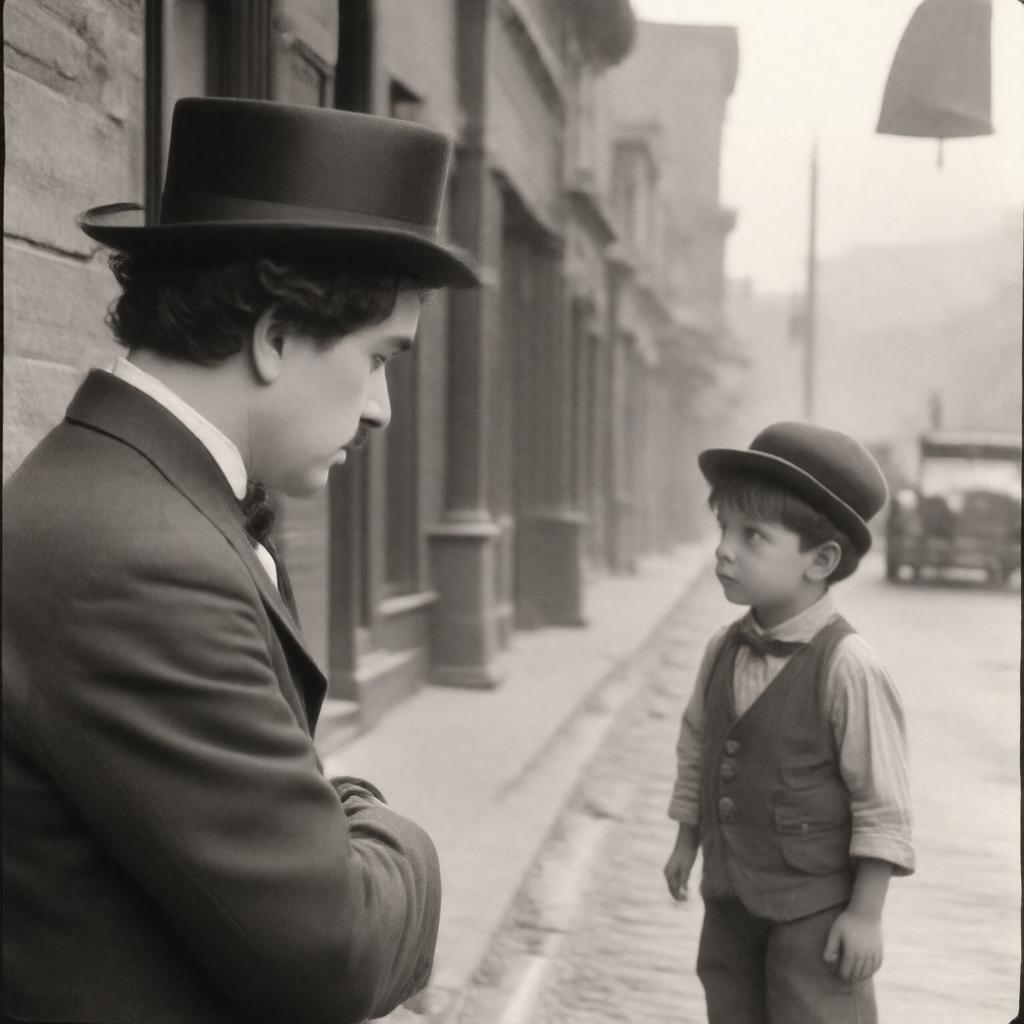Prompt
"Generate an image of a poignant scene from the 1921 silent film 'The Kid', directed by Charlie Chaplin, featuring Charlie Chaplin as The Tramp and Jackie Coogan as The Kid, in a style reminiscent of the film's era, capturing the blend of comedy and drama that defines the movie."

